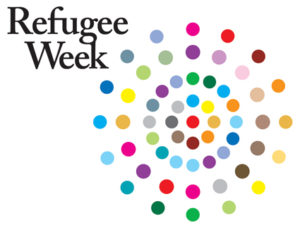This Refugee Week (June 17 to 23), ANDY HAMILTON SJ writes that for vulnerable people who arrive in Australia as refugees, finding a new home does not heal all the wounds of people’s past.
 Refugee Week this year invites us to raise our eyes briefly from the barbarity of Manus Island and Nauru to take a larger international view. Australia is one of many nations that does not have a refugee problem. We have solved it by stopping refugees from coming and by making their lives intolerable if they do come. We are one of the many wealthy nations that has built walls around itself to exclude people who have been driven from their homelands by war, persecution, discrimination and starvation. For these nations refugees do not count
Refugee Week this year invites us to raise our eyes briefly from the barbarity of Manus Island and Nauru to take a larger international view. Australia is one of many nations that does not have a refugee problem. We have solved it by stopping refugees from coming and by making their lives intolerable if they do come. We are one of the many wealthy nations that has built walls around itself to exclude people who have been driven from their homelands by war, persecution, discrimination and starvation. For these nations refugees do not count
Many other nations do not have a refugee problem, either. They are happy to engage in the wars, acquiesce in the persecution, and do nothing to address the starvation, which drive people beyond their national borders. For these nations refugees do not count.
Some nations do have a refugee problem. They receive little attention. They are the generally impoverished neighbouring nations whose borders people cross to escape war, persecution and starvation. They care for refugees as best they can with the help of voluntary organisations. For them refugees do count.
Refugees themselves have big problems. As wealthy nations have solved their refugee problem in a way that ensures their citizens do not have to see refugees or be confronted by their suffering and needs, the number of refugees and their misery have grown greatly. They have had to leave their homes because of war, persecution or starvation. They are the men, women and children whose families have been scattered, the horizon of their hopes confined to daily survival, with no assurance of security, shelter or food. They long for people on whom they can count.
In Refugee Week we are invited to raise our eyes from our own walled-in world to look down through God’s eyes on the world in which we live. We are invited to look with God’s compassion on the people running to safety or fenced in by barbed wire, excluded from society. We are invited to look with God’s puzzlement on such nations as our own that build the walls, put up the barbed wire and keep refugees at bay. We are invited then to look at ourselves and ask what compassion might ask of us. As always the answer will begin with little things, with seeing people as people and not as problems.
Among the vulnerable young people whom we accompany at Jesuit Social Services are many who came as refugees. As we meet them and their families, we recognise that finding a home in Australia does not heal all the wounds of people’s past. They continue to need our compassion and help as they begin to make connections with their new society. A small step to building a more just world.

